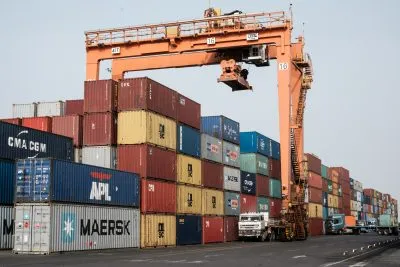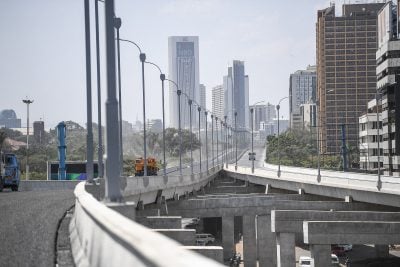As South Africa’s political forces draw up their battle plans for the national elections later this year, the already embattled ANC suffered a body blow when the largest labour union in the country, the metalworkers, decided to split from the grand alliance that has hitherto delivered victory for the ruling party. Tom Nevin discusses the implications of Numsa’s decision to go it alone.
The Numsa breakaway is momentous in South African politics and organised labour as the first real and major threat to the tripartite alliance that has ruled the country since democratic elections in 1994. The alliance comprises the African National Congress (ANC), the South African Communist Party (SACP) and the Confederation of South African Trade Unions (Cosatu) of which Numsa is the biggest member, and was stitched together pre-1994 to fight the elections as a united leftwing revolutionary front. As it turned out, the alliance scooped nearly 67% of the vote and swept powerfully to victory.
Twenty years is not a long time in politics, and in the two decades gone by since South Africa’s dramatic rebirth, the hitherto ‘unbreakable alliance’ comprising the ANC, the Confederation of South African Trade Unions (Cosatu) and the South African Communist Party (SACP) is starting to show the cracks. The most severe is Numsa’s threat to walk out of the alliance taking 340,000 erstwhile ANC voters with it. The alliance partners shrugged it off as posturing; they’d seen it all before, but this time it is serious. The most complicating factor now is where those votes will go.
The political and ideological unity forged so enthusiastically in the Nelson Mandela presidency was shown not to have been as ironclad after all, as demonstrated in the presidential succession in the following 15 years. Siren songs came from every point on the ideological compass.
But for most of South Africa’s downtrodden masses, the ANC is their political home and comfort, and their most likely recourse in this year’s election is not to vote at all. For these voters, the problem is not with the ANC but with the elite that runs it. President Jacob Zuma and his acolytes have become, in the eyes of the ANC stalwarts, unworthy of carrying the party torch. And the sooner they can be got rid of the better.
South Africans elect their government through the proportional representation (PR) process. This means that the number of seats won by a party or group of candidates is proportionate to the number of votes received. For example, if 30% of voters support a particular party then roughly 30% of parliamentary seats will be won by that party. In South Africa’s case, it would mean that a vote for the ANC would be a vote for Zuma and his coterie at the head of the party list. Most early polls showed that voters recognised this state of affairs and many said they would not vote at all. But this attitude might be changing.
The unionised masses, representing nearly 2m members, rode the triumphal wave along with the ANC and SACU. In that band of happy workers were over 300,000 metalworkers, mainly miners, with Numsa their union home, the biggest by membership in all of Africa. The alliance euphoria was boundless. Democracy had arrived and created a seemingly unstoppable and unbreakable monolith of proletariat power.
At the Numsa congress, at the tail end of 2013, the 1,200 delegates did not have to wait long before secretary-general Irvin Jim unambiguously made known what was to come. In a tribute to Nelson Mandela, he quoted the liberation stalwart as saying in 1993, “You must be vigilant! How many times has a labour movement supported a liberation movement, only to find itself betrayed on the day of liberation? There are many examples of this in Africa. If the ANC does not deliver the goods you must do to it what you did to the apartheid regime.”
Jim then insisted that the time had come for Numsa’s parting of the ways with its alliance partners. “We are united in our militant determination to use our strength to win fundamental change in the policies and strategies of government as the only way to solve the triple crisis of poverty, unemployment and inequality.”
The ANC had been captured by representatives of an enemy class, said Jim, and had adopted the strategic plan of that class.“Its leadership has shown that it will not let the small issue of democracy get in the way of defending its control,” he said. “As well as the continued poverty of the majority of the working class, the result of this has been the slaughter of workers. The working class cannot any longer see the ANC or the SACP as its class allies in any meaningful sense”. The die was cast.
In Jim’s view the only way forward was for President Zuma, who was booed at a memorial for anti-apartheid legend Nelson Mandela on 10th December, to resign with immediate effect because of his administration’s pursuit of neo-liberal policies, and the track record of his administration which is steeped in corruption, patronage and nepotism”. He urged the Cosatu labour confederation to break from the ANC-led alliance. “The time for looking for an alternative has arrived,” he said.
ANC secretary general Gwede Mantashe was quick to pick up the gauntlet and retort that the tripartite alliance was in no danger from Numsa’s threats to dump Cosatu and the ruling party. “The ANC is in alliance with Cosatu, not Numsa,” he said. Mantashe’s repudiation of Numsa’s revolt was swift and pointed, clearly mindful that the general elections were less than six months away.
Numsa responded that it would break with tradition and not campaign for the ANC at the elections or support the party financially, adding that it was withholding its R800,000 ($80,000) monthly subscription to Cosatu.
“Numsa as an organisation will neither endorse nor support the ANC or any other political party in 2014,” general secretary Jim told a news conference. He said Numsa officials or workers could campaign for the ANC but would have to do this “in their own time using their own resources”.
Although political parties in opposition to the ANC are too weak and divided to pose any serious electoral threat to the ruling party, “many over the years have turned to civil society – especially the trade union movement – as the only viable vehicle to challenge the growing corruption and abuse of power by the state”, says an editorial in the mass media Sunday Times. By accident or design, the maverick Numsa union might be just the ticket for the ANC’s growing number of the disenchanted.
No longer ANC rubber stamp
Suddenly, South Africa’s political party ranks are awash with recent wannabes especially on the ultra-left. Lining up against the ANC, although not necessarily in cahoots, are middle-of-the-road relative newcomers COPE and Agang SA and far leftists Economic Freedom Fighters, the Workers and Socialist Party (WASP) and the Democratic Left Front (DLF) all jostling to attract Numsa’s attention.
The union, however, says it is not interested in political affiliations just yet and will not be contesting this year’s elections. It says it plans to establish a new “united front” that will co-ordinate struggles in communities and in the workplace. The ultimate goal is to form a labour party by 2015 that will contest elections in 2019.
Numsa says it will convene a conference on socialism this year and will commission an international study on the formation of working-class parties, such as those in Brazil, Venezuela, Bolivia and Greece. The new United Front will explore the establishment of a movement for socialism, because “the working class needs a political organisation committed in its policies and actions to the establishment of a socialist South Africa,” says Numsa in a draft resolution.
In saying ‘good riddance’ as it walked away from the tripartite alliance, Numsa maintained that the alliance was nothing more than a prop that was dragged out at election time. “Although there are protests everywhere and every day in the country, the Alliance is not an instrument in the hands of these struggling masses, nor does it provide leadership to these struggles, which are largely leaderless struggles,” notes Jim in a conference report-back. “The reality is that there is a political vacuum and the working class is on its own. The alliance operates only during election periods.”
He said the alliance was used as a rubber stamp for the neo-liberal policies of the ANC and not as a centre of power that debates policy issues and implementation. “It is our experience that the working class is being used by the leader of the alliance – the African National Congress – as voting fodder,” he said.
The South African voting landscape is being roughed up to no small extent and the venerable ANC party is facing real electoral challenges as never before. It is daily more apparent that the only card it has left to play is ditching Jacob Zuma, and that is a leap of enormous proportion.
Want to continue reading? Subscribe today.
You've read all your free articles for this month! Subscribe now to enjoy full access to our content.
Digital Monthly
£8.00 / month
Receive full unlimited access to our articles, opinions, podcasts and more.
Digital Yearly
£70.00 / year
Our best value offer - save £26 and gain access to all of our digital content for an entire year!
 Sign in with Google
Sign in with Google 



